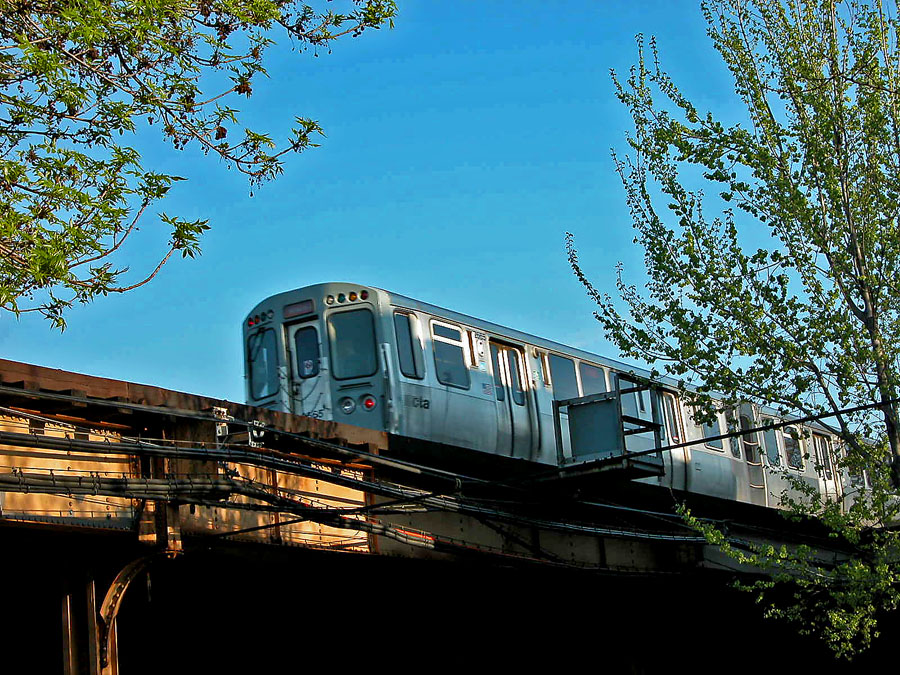The transportation news has been flying out of Chicago lately. Last week, in a 41-9 vote, the City Council approved Mayor Rahm Emanuel's Chicago Infrastructure Trust, which will be used to build projects with private financing. Earlier this week, Emanuel and transportation commissioner Gabe Klein just unveiled a plan for a downtown bus rapid transit loop that will serve six different routes. Those bus lanes will open within two years. In the meantime, 2012 will see the inauguration of a 300-station bike share system and the city's first enhanced bus service on Jeffrey Boulevard.

When it comes to improving existing transit, however, the mess in Washington is still threatening to delay some much needed improvements to Chicago's century-old system of elevated trains.
Chicago's Red Line is the city's busiest, as well as one of its oldest, with some segments of the route dating to 1900. It's long overdue for a modern overhaul, but current federal laws don't offer much in the way of support for aging transit networks, making it much easier to get federal money if you're starting from scratch. As an article in the Chicago Tribune describes it, the fate of the Red Line hinges on the work of the conference committee currently hashing out a national transportation bill:
Under existing federal transit rules and the House proposal, the Red Line replacement wouldn’t be eligible for “new starts” funding because the project is on an existing transit line.
The Senate bill, however, “recognizes common sense and says you’re building a new railroad,’’ [Chicago Transit Authority President Forrest] Claypool said. “It just happens to be within the existing right of way that is serving an increasing number of riders each year, despite its deteriorating condition.’’
Cost estimates for the rebuilding range from $2 billion to $4 billion depending on "options for new stations and other upgrades" according to the Tribune, and that's only the first phase, covering about nine miles on the city's north side. A planned 5.3-mile extension on the south side would cost an additional $1.4 billion, and is also on hold pending Congressional action.
Rebuilding the Red Line had been suggested as a possible use of financing from the new infrastructure trust, but it's not clear how any borrowing would be paid back. Matt Sledge at the Huffington Post raised the point that Emanuel still hasn't been specific about what kind of projects the trust will be able to finance -- and who will benefit from them.
Absent some additional certainty in Washington, it seems increasingly unlikely that city hall can fill in all the gaps, even in a city with as much forward momentum as Chicago.





